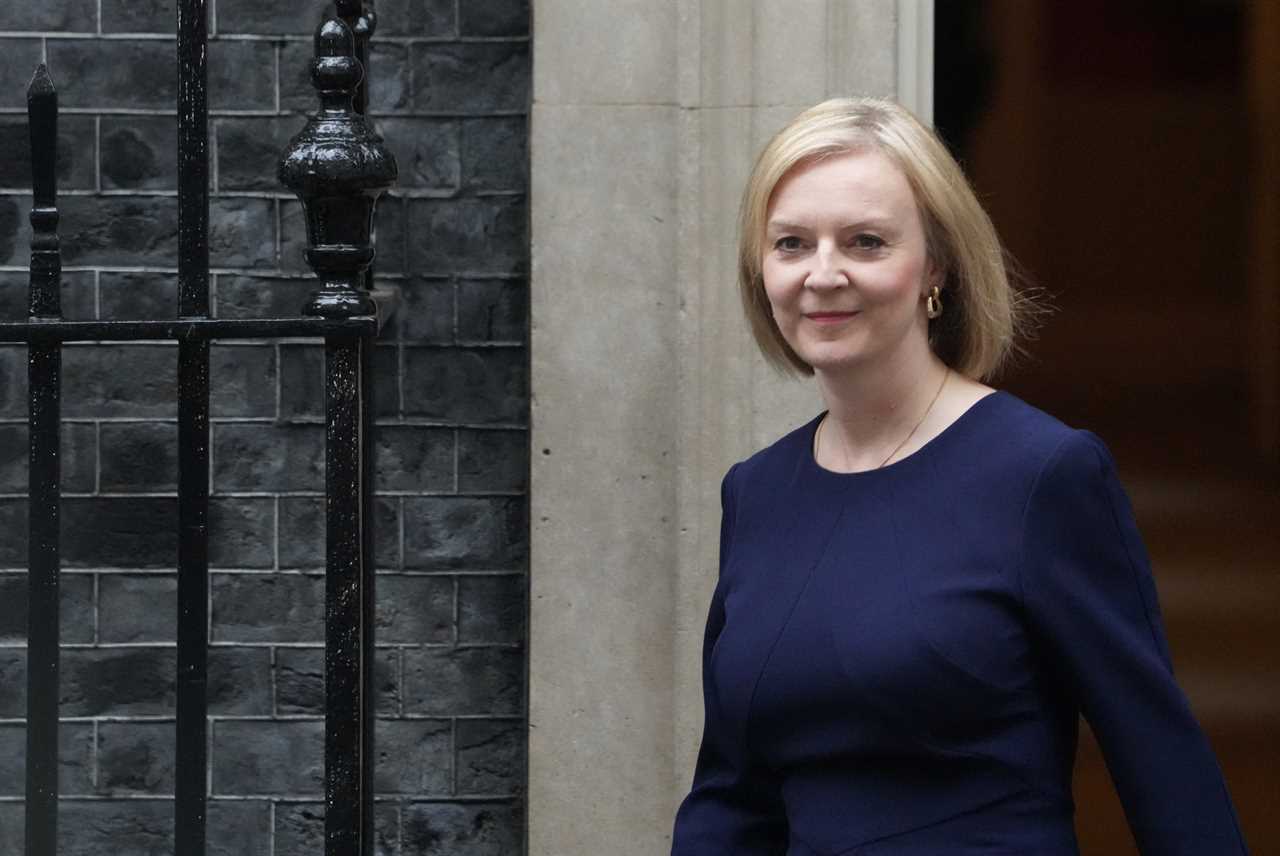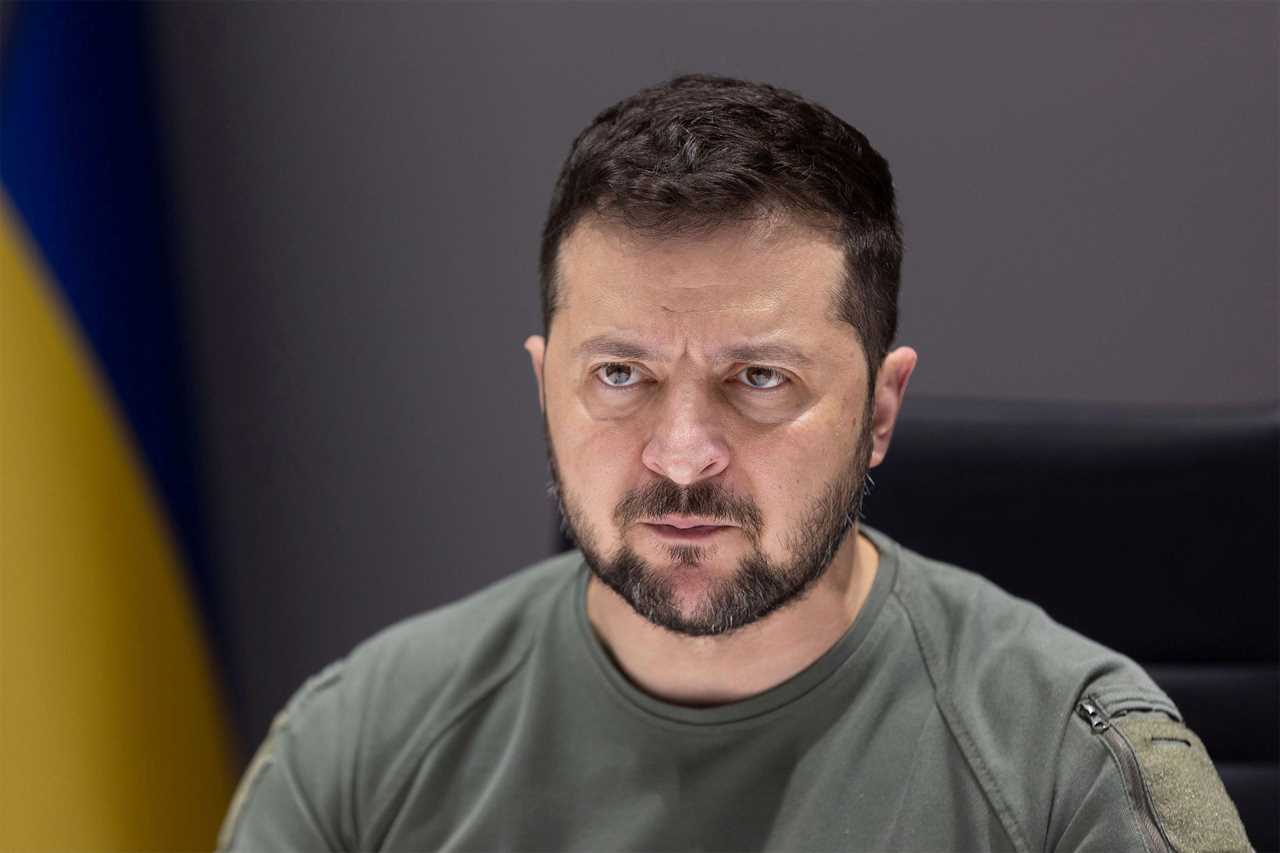PRIME Minister Liz Truss will join G7 leaders and President Zelensky tomorrow as Putin threatens nuclear warfare.
She will ask countries to maintain biting sanctions and call for a full meeting of NATO leaders in the coming days.

Prime Minister Liz Truss walks outside Downing Street

Zelensky will address G7 leaders in the virtual meeting on Tuesday
In the first gathering of all G7 leaders since Ukraine’s counter-offensive, which will also discuss the global energy crisis precipitated by Putin’s actions, she is expected to say: “The overwhelming international support for Ukraine’s struggle stands in stark opposition to the isolation of Russia on the international stage.
“Their bravery in the face of the most brutal acts of violence has earned the people of Ukraine global admiration.
“Nobody wants peace more than Ukraine. And for our part, we must not waver one iota in our resolve to help them win it.”
G7 is currently working to finalise and implement an international cap on the price of Russian oil, which will further damage Putin’s revenue stream.
Zelensky will address G7 leaders in the virtual meeting at 1pm on Tuesday.
The crisis talks come after Moscow launched a massive missile and drone barrage in retaliation for Ukraine’s attack on a bridge linking Russia with Crimea.
Ms Truss and Zelensky spoke on Monday following the wave of horror attacks which left at least 11 dead and 64 injured.
The PM said the assault on Ukraine’s capital Kyiv was a sign of Putin’s desperation after a series of humiliating military setbacks.
“The appalling attacks on civilian areas in Kyiv and elsewhere are a clear sign of Putin’s desperation,” she said.
“Ukrainians are succeeding, and Britain will stand right behind them as we continue to provide vital military aid in Ukraine’s fight for freedom.”
Zelensky said Ukraine counts on the UK’s “leadership in consolidating international political and defence support for Ukraine, in particular regarding the protection of our skies”.
Ukraine has stepped up calls for Western allies to provide anti-air and anti-missile systems in response to the attacks.
Kyiv was targeted for the first time in months on Monday.
Russia also hit playgrounds, bridges and civilians across the country – from Kharkiv in the east to Lviv near the Polish border.
Putin confirmed the strikes were a retaliation for Ukraine’s attack on the Kerch Bridge, a crossing between Russia and annexed Crimea that has strategic and symbolic importance.
He said if Ukraine continues to mount “terrorist attacks” on Russia, the Kremlin’s response will be “tough and proportionate to the level of threats”.
The attack on Kyiv resulted in explosions in the city’s Shevchenko district – a central area which includes the historic old town as well as several government offices.
Foreign Secretary James Cleverly offered the UK’s “ongoing moral and practical support” to his counterpart in Kyiv, Dmytro Kuleba.
“Russia’s firing of missiles into civilian areas of Ukraine is unacceptable,” he said.
“This is a demonstration of weakness by Putin, not strength.”
Security minister Tom Tugendhat added: “Targeting civilians is a vile act. Russian war crimes start as a record of failure and disgrace.”
Labour leader Sir Keir Starmer called the Russian attacks “unjustifiable”.
“The UK is firmly united in condemning Putin’s latest wave of violence and destruction,” he said.






